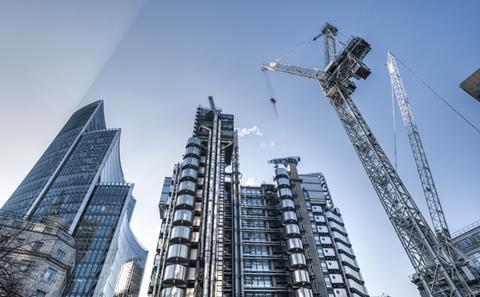Sector hopes clarity on Brexit will deliver confidence boost
Construction output has fallen for the eighth consecutive month, according to the latest data from IHS Markit.
The London-based global information provider said respondents to its regular monthly survey attributed the drop in their workloads to political uncertainty and subdued client demand ahead of the general election.

The firm’s activity index for December registered a score of 44.4, down from 45.3 in November and below the 50 no-change value for the eighth consecutive month.
Civil engineering was by far the worst performing sector, with activity falling at the fastest rate since March 2009. Anecdotal evidence suggested that political indecision and delays with contract awards for new projects had stopped work getting off the ground.
Housebuilding output dropped for the seventh successive month in December.
Overall, it was a bad month for the domestic construction industry, with researchers pointing to another sharp reduction in output. The downturn is persisting across civil, commercial and residential work.
Sluggish demand held back price rises among suppliers in December. The latest increases were the weakest recorded by the survey for almost a decade. Higher fuel and energy costs were the main drivers of rising input prices.
While December was bleak, Tim Moore, IHS Markit’s economics associate director, said that business optimism had recovered to reach its strongest level in nine months.
“Survey respondents cited confidence that a more predictable domestic political landscape and clarity on Brexit could deliver a much-needed boost to clients’ willingness to spend in 2020,” he added.
Max Jones, relationship director at Lloyds Bank’s infrastructure and construction team, said: “The industry will hope that 2020 brings more clarity, which will help boost confidence.
“Whether this happens or not is still to be seen, but either way the onus will continue to be on firms to invest.”




























No comments yet